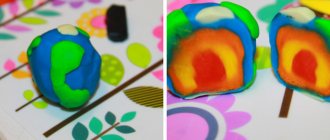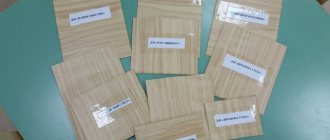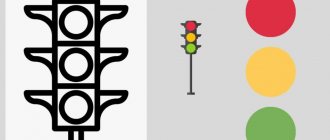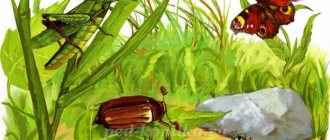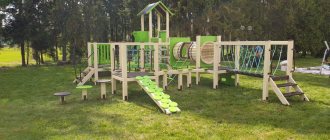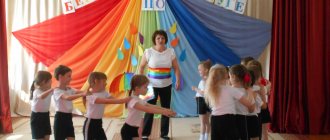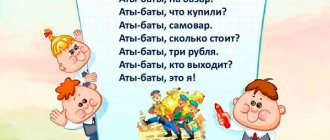Game – relay race “School of Traffic Light Sciences”; 5 – 8 grades
Progress of the game “With the ABC of streets, avenues, roads, the City gives us a lesson all the time. Always remember the alphabet of the city, so that no trouble happens to you!” I. 1. Opening remarks. Young pedestrians! Future drivers! Rules everywhere, Children and parents! You should always know them: Cyclists and motorcyclists! Motorists will not set sail without them! From the ship's harbor. Our guests, our viewers! Welcome! Hello! They set off according to the rules. The way is open to us! Green light! Polar explorer and pilot. The city in which you and I live has its own rules. It can rightfully be compared to an alphabet book, Driver and pedestrian. Here it is, the alphabet, on the pavement. Like a multiplication table, like a lesson, the signs are hung above your head. Remember the traffic rules by heart!
ABC of streets, avenues, roads Attention! Attention! The city gives us a lesson all the time. A competition awaits you! Always remember the alphabet of the city, For the best knowledge and skill So that trouble does not happen to you! Traffic rules!
2. Dear guests, dear players! Today we will have a relay race “School of Traffic Light Sciences”. The purpose of today's game is to test how well children know the rules of the road, road signs and how to apply knowledge in practice. Before us are 3 teams: red, yellow and green players. Today I will be Petya Svetoforov’s chief deputy and the host of the game. Listen to the rules of the game. Petya's assistant and friend is Traffic Light. But just recently it broke and we have to fix it. For winning each competition, a team receives a token in their team color. The team that collects the most tokens will be considered the winner of our game and will have the right to turn on the traffic light. Now it's time to start the competition.
II. Main part. 1. Traffic rules must be followed. Guys, we live in a small village where not many cars drive, but, nevertheless, they exist. From time to time, you and your parents go to the city, and in the summer many of you visit your relatives in other cities or towns. And in big cities the traffic is much busier. You know that a car provides invaluable assistance to a person, both in the transportation of national economic goods and in the transportation of passengers. At the same time, a car can also cause accidents. The first accident in mechanical transport can be considered the accident with the steam cart of the French inventor Cugnot. The steam mechanism went on a test run on the streets of Paris, the driver was unable to control the heavy and clumsy equipment, and it crashed into a stone fence. The boiler of the steam cart exploded with a “roar throughout Paris,” as an eyewitness wrote about it. The driver was sent to the hospital. When fast cars with gasoline engines appeared, the number of road accidents also increased. It is estimated that since the first cars appeared on the streets and roads of our planet, more than two and a half million people have died under their wheels. Nowadays, about 300 thousand people die every year in car accidents around the world. To this we must add that millions of people receive various types of physical and mental injuries in road accidents. That is why serious attention is now being paid to road safety issues.
-4- 2. Main causes of road accidents. So, what can you name as the main causes of road accidents? (tokens) 1. End of the school year, increase in the number of children on the roads. (multimedia) 2. Reduced control on the part of parents. 3. Slippery sections of the road during bad weather. 4. Reduced visibility due to bad weather. 5. Bright blinding sun. 6. Poor condition of roads. 7. Distracted attention of drivers and pedestrians. 8. Crossing the street in an unspecified place. 9. Crossing in front of nearby traffic. 10. The appearance of pedestrians due to vehicles standing on the roadway. 11. Outdoor games on the roadway. 12. Riding bicycles on the roadway. 13. Reduced visibility during bad weather due to an umbrella, raised collar, etc. 14. Crossing roads when visiting theaters together, etc. 15. Adaptation to new conditions while relaxing outside the home.
3. “Say what you want...” (Warm-up) - Now I’m checking what kind of attentive pedestrians you are and whether you’re ready for the game. I ask you a question, and you answer “yes” or “no.” • Say what you want, there is sweet water in the sea? (No) • Say what you want, red light - no way? (Yes) • What do you want - say, every time we go home, we play on the pavement? (No) • Say what you want, but if you are in a hurry, do you run in front of the transport? (No) • Say what you want, we always move forward only where there is a transition? (Yes) • Say what you want, are we running forward so fast that we don’t see the traffic light? (No) • Say what you want, is there a person drawn on the “no passage here” sign? (No) • Say what you want, on round signs the red color means “it’s prohibited here”? (Yes)
4. “Various signs are important, All kinds of signs are needed!” 1) Road signs 1. Why are road signs needed? Road signs and markings help organize the movement of cars and people, make the work of drivers easier and help everyone navigate correctly in difficult situations on the roads. 2. What groups are road signs divided into? 1) Warning signs (multimedia)
2) Priority signs (establish someone’s primacy, the order of passage of different sections of roads)
3) Prohibition signs
4) Mandatory signs
5) Information signs 6) Service signs -5-
7) Additional information signs (plates) 300m
3. What traffic lights do you know and what is their meaning? Red signal – prohibits pedestrians from crossing the street. Yellow – warns, prohibits pedestrians from crossing the street. Green – allows you to cross the street. 4. Who are road users and for whom are there road signs? Driver, pedestrian, passenger. 5. What types of pedestrian crossings are there, and what road signs indicate them? Pedestrian crossing, underground passage, overpass. 6. Where can pedestrians cross the street, and what signs indicate this? Only at intersections; in places marked with “Transition” signs; along pedestrian paths painted on the pavement with white paint.
2) “Find the signs!” Now let's check whose team knows the road signs better. The captains choose a sign with some group of signs and hang it on a magnetic board as a heading. Your task: quickly find the necessary signs and put them under your heading. 1) Warning signs (magnets, plates, signs) 2) Prohibitory 3) Information and guidance
3) “One extra one” (multimedia) (Road signs are given to children) - Look at the signs, find the extra one and prove (you must name the group of signs and from which group the extra sign is).
4) “Repair shop” (mosaic, puzzles) - Very often traffic violators damage road signs, and now we have to repair some of them. You need to assemble a road sign from the proposed components and name it correctly.
5) “Auction of signs” (ball) (service signs) - During class hours you studied 5 groups of signs. Now is your opportunity to demonstrate knowledge of service marks. Each team takes turns naming one sign. The team that lasts the longest at the auction will be considered the winner of this competition. 1) first aid station; 2) hospital; 3) gas station; 4) vehicle maintenance; 5) car wash; 6) telephone; 7) food station; drinking water; 9) hotel or motel; 10) camping; 11) place of rest; 12) traffic police post. -6- 6) “A Minute of Safety” (multimedia) “How do you cross the road?” 1. There is a car where you are crossing. What to do? It’s better to move away from it so that it doesn’t interfere with your view; as a last resort, moving very slowly, stop and look out: what is it... 2. You are crossing not far from the stop. A bus stopped nearby. Where and how should I go? If there is a pedestrian crossing or intersection nearby, be sure to cross there. If not, then wait until the bus leaves. Under no circumstances run out from the front! It’s better not to go around from behind (you can’t see the car on the right!), but, as a last resort, while moving very slowly, stop and look out: what’s there... 3. You’re about to cross, but you see that a large vehicle (truck or truck) is slowly approaching bus). You may well have time to cross over. What to do? The main danger of an approaching car is that it can prevent you from noticing another one moving in the same direction, often at a higher speed. Let him pass, even if he is driving slowly. 4. Before crossing, you let the car pass. You don't see the car anymore... Can I move on? It’s possible, but after waiting a little, let the passing car move further away. What if she hides the oncoming person behind her? 5. Why is it dangerous to cross the road together, arm in arm or holding hands? When a whole column of children crosses the road, it is safe to hold hands. When two or three are crossing, this should not be done, because when danger appears, children can pull each other in different directions and lose precious seconds. 6. Why is it dangerous to play near the road? While playing, you can forget about the danger, run out onto the road and get hit by a car. 7. The boy is in a hurry to go to the cinema and is late. A truck is approaching the crossing, but the boy sees that it will have time to cross. What is the danger of such a situation? There are two dangers. Firstly, another car may be following the truck, hidden from the boy’s eyes. Secondly, when crossing, the boy will only watch the approaching truck and may forget to look in the other direction. 8. Where and how should a pedestrian walk along the streets? On the right side of the sidewalk or along the road towards oncoming traffic. 9. Name the safest places for a pedestrian in two-way traffic. Sidewalk, traffic island.
Now is your opportunity to demonstrate knowledge of service marks. Each team takes turns naming one sign. The team that lasts the longest at the auction will be considered the winner of this competition. 1) first aid station; 2) hospital; 3) gas station; 4) vehicle maintenance; 5) car wash; 6) telephone; 7) food station; drinking water; 9) hotel or motel; 10) camping; 11) place of rest; 12) traffic police post. -6- 6) “A Minute of Safety” (multimedia) “How do you cross the road?” 1. There is a car where you are crossing. What to do? It’s better to move away from it so that it doesn’t interfere with your view; as a last resort, moving very slowly, stop and look out: what is it... 2. You are crossing not far from the stop. A bus stopped nearby. Where and how should I go? If there is a pedestrian crossing or intersection nearby, be sure to cross there. If not, then wait until the bus leaves. Under no circumstances run out from the front! It’s better not to go around from behind (you can’t see the car on the right!), but, as a last resort, while moving very slowly, stop and look out: what’s there... 3. You’re about to cross, but you see that a large vehicle (truck or truck) is slowly approaching bus). You may well have time to cross over. What to do? The main danger of an approaching car is that it can prevent you from noticing another one moving in the same direction, often at a higher speed. Let him pass, even if he is driving slowly. 4. Before crossing, you let the car pass. You don't see the car anymore... Can I move on? It’s possible, but after waiting a little, let the passing car move further away. What if she hides the oncoming person behind her? 5. Why is it dangerous to cross the road together, arm in arm or holding hands? When a whole column of children crosses the road, it is safe to hold hands. When two or three are crossing, this should not be done, because when danger appears, children can pull each other in different directions and lose precious seconds. 6. Why is it dangerous to play near the road? While playing, you can forget about the danger, run out onto the road and get hit by a car. 7. The boy is in a hurry to go to the cinema and is late. A truck is approaching the crossing, but the boy sees that it will have time to cross. What is the danger of such a situation? There are two dangers. Firstly, another car may be following the truck, hidden from the boy’s eyes. Secondly, when crossing, the boy will only watch the approaching truck and may forget to look in the other direction. 8. Where and how should a pedestrian walk along the streets? On the right side of the sidewalk or along the road towards oncoming traffic. 9. Name the safest places for a pedestrian in two-way traffic. Sidewalk, traffic island.
7) Physical education pause for attention (sign) - I ask you a question for attention, and you show the answer with your movements. Be careful. • How are you living? • How do you go across the road? • How do you run at a red light? • Are you standing at the green light? • How do you play pranks on the roads? • Are you running into a yellow light again? • How do you walk along a zebra crossing? • How do you create noise in transport?
-7-  “Encrypted letter” (letters, sheets, pens) - Each team received a letter dedicated to the Traffic Rules, but the text is encrypted. You have to decipher it and read it expressively.
“Encrypted letter” (letters, sheets, pens) - Each team received a letter dedicated to the Traffic Rules, but the text is encrypted. You have to decipher it and read it expressively.
1. “Before you cross the road, find a safe place to cross. Stop at the edge of the sidewalk. Look carefully first to the left, then to the right, to see if there are any cars. Cross the road in a straight line. Always follow the traffic rules! Be a careful pedestrian!”
2. “Guys! Learn and follow the rules of the road! Before crossing the road, make sure it is completely safe. Cross the road only when the traffic light is green. Do not cross the roadway in front of nearby vehicles. Remember: transport cannot be stopped immediately! The road is not a place to play!”
3. “Guys! Do not cling to the sides of trucks or other vehicles - this will lead to disaster. Playing on the pavement is dangerous. Help your younger comrades cross streets and roads correctly. Playing and running on the road is prohibited! Be a good example for younger children in everything.”
9) “Artists and poets” (sheets of paper, pencils, felt-tip pens, rulers, rhyming words) a) Burime Participants are offered cards with rhyming words. Each team must compose a poem using the given words. 1: skating rink, whistle, pavement, guard; 2: motor, traffic light, dangerous, in vain; 3: opportunity, caution, take care, run.
b) Draw and protect your sign.
Full text of the material Game - relay race “School of Traffic Light Sciences”;
For grades 5 – 8, see the downloadable file . The page contains a fragment.
| Author: Vorontsova Lyubov Vladimirovna → LVV 01/17/2011 19 26334 4966 | Comment |
Thank you for your mark. If you want your name to be known to the author, log in to the site as a user and click Thank you again. Your name will appear on this page.
Login | Registration
Have an opinion? Leave a comment
Fun starts with elements of traffic rules “We run, jump, don’t push – we’re friends with traffic rules!”
The first player on each team puts his hand into the bag and takes out a ball. If it is red or yellow, the team stands still, if it is green, they run to the first pin. Then - to the next one, and so on until the fourth. Whichever team reaches the fourth pin first wins.
Props: 4 cones for each team, a bag of balls: red, yellow, green.
Relay race
"Road Postmen"
Leading:
Once upon a time there was a time when a person did not know cars and telephones, and news from city to city was transmitted with the help of messengers, they used their legs as a means of transport, the faster the messenger ran, the faster the message reached the addressee, being a messenger was dangerous, because that some eastern rulers, having received unpleasant news, cut off the head of the messengers.
And now you will act as messengers in the “Road Postmen” .
This bag contains the initial parts of travel terms that are familiar to you; the whole team participates in the competition. At the start, you receive walking boots, each player takes turns running between the pins in them to the tablet, takes out a card with the initial part of the word from the bag, finds the second part and applies it. Returns in a straight line and passes the relay bag to the next participant in the game. For 5 correctly composed words, the team receives 10 points, for each knocked down pin there is a penalty of 1 point, the team that finishes the relay first receives an additional point.
Props: walking boots - 3 pairs, 3 posters (2*3), 3 bags, 3 sketches of cut halves with travel terms.
| before | ro | ha |
| new | That | odds |
| ne | she | move |
| aw | That | beads |
| in | di | tel |
Relay race
“A road sign is broken - it’s not difficult for us to put it back together”
At the start, each team has puzzles of a road sign. The team’s task is to translate the missing elements of the split sign that are at the finish line as quickly as possible. Collect it and give the sign a name. The captain of each team is the “driver”. He puts on the hoop, runs to the finish line, and returns to the team. A second participant (passenger) joins him. They reach the finish line, the “passenger” uncouples, takes one element of the split sign, and the “driver” runs after the next one. This is how he transports all team members. At the end, the whole team joins each other (the driver is in front), each participant has one element of a split sign, returns to the start and assembles the road sign.
Props: 3 hoops, 3 cut “Pedestrian crossing” signs.
Relay race
"Agile drivers"
Each team is given a car with “throwers”, at the signal, the first players run with the machine, avoiding obstacles (pins), there is a “stop” sign on the way, they take the “thrower” from the back of the car and put it in a bucket, return and pass the car to the next player, Each hit “ball” brings the team 1 point, a pin knocked down – minus 1 point, the team that finishes the relay faster receives an additional point.
